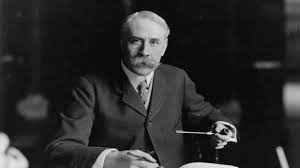


English composer, pianist and violinist who marked with his music the British Victorian era and became one of the representatives of his country's national identity.
The young Elgar had the great advantage of growing up in a musical environment, as his father owned a music shop, and learned music almost by himself in his father's shop, with his family not having the financial means to educate him. By the age of sixteen he was a proficient enough player to support himself as a freelance violinist and teacher, but his true ambition was to become a composer. Elgar, coming from a poor family and a small village, had to fight hard for national and international recognition.
The Enigma Variations is one of his most well-known works, produced in 1899, through which he marked his breakthrough. This work contains 14 variations, each being a musical self-portrait of Elgar's close friends, with the mystery of a hidden theme incorporated in it. But his most fruitful period was during the first decade of the 20th century, when he produced some of his most important works such as the choral work "The Dream of Gerontius", the "Pomp and Circumstance Marches" and the "Cello Concert".
His wife had been the driving force behind his genius, encouraging him at every opportunity and never losing faith on him so when she died, in 1920, he lost much of his inspiration and support. Elgar's productivity was also very much influenced by the death of his close friend, advisor and emotional supporter, Jaeger, and the onset of the World War I, which brought him into deep melancholy.
Elgar was a complex personality, with self-doubt and pessimism, in both himself and his music, and frequent crises of depression. His music epitomised the British Victorian culture of his time, and had a hint of patriotism. However, one of its indisputable marks was its strong emotionality. He often conducted his music with tears running down his face, a fact which revealed how moved he was by it.